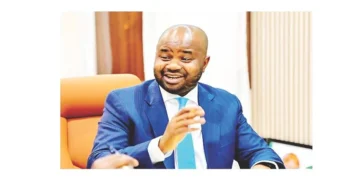Power commissioners across Nigerian states have rejected the proposed 2025 Electricity Act (Amendment) Bill, warning that it could derail recent sector reforms and impose unsustainable financial burdens on both consumers and state governments.
The Forum of Commissioners of Power and Energy in Nigeria (FOCPEN), which represents state-level electricity regulators, raised these objections in a strongly worded statement.
FOCPEN warned that Nigeria’s power sector is already crippled by over ₦5 trillion in unpaid electricity subsidies, with ₦1.94 trillion spent in 2024 alone, discouraging private investment and threatening the country’s energy reforms.
The forum called on the National Assembly to abandon the proposed amendment, arguing that it would worsen existing financial and regulatory crises.
In a petition signed by Prince Eka Williams, Commissioner of Power and Renewable Energy, Cross River State and FOCPEN Chairman, alongside Barr. Omale Omale, Commissioner of Power, Renewable Energy and Transport, Benue State and FOCPEN Secretary, the forum said the bill could strip states of their regulatory autonomy, increase investor uncertainty, and reintroduce a damaging subsidy regime just as Nigeria is working to phase out unsustainable energy subsidies.
The bill introduces clauses that subordinate state laws to federal regulations, effectively overriding states’ constitutional powers to develop and regulate their own electricity markets under the Electricity Act 2023.
New provisions grant the Nigerian Electricity Regulatory Commission (NERC) overriding authority in areas constitutionally reserved for states, undermining federalism and potentially sparking legal challenges.
Proposed mandatory surcharges and contributions to fund new federal agencies and the Power Consumer Assistance Fund would burden electricity consumers with higher tariffs, even in states implementing cost-reflective tariffs linked to improved service.
FOCPEN described the bill as an unconstitutional “backdoor amendment” that reverses gains made under the Electricity Act 2023 and conflicts with the fifth alteration to the 1999 Constitution, which empowered states to operate their own electricity markets.
The forum warned that centralising regulatory control under NERC and the Nigerian Electricity Management Services Agency (NEMSA) would stall investments in state markets, undermine President Bola Tinubu’s ongoing reforms, and create overlapping and conflicting mandates.
They criticised the absence of meaningful consultation with states, who are now leading electricity market development, stressing that sustainable reforms require federal and state collaboration.
“This amendment bill will dismantle progress achieved under the Electricity Act 2023 and risks derailing President Bola Ahmed Tinubu’s key energy sector reforms,” FOCPEN said.
They urged the National Assembly to halt consideration of the bill, emphasising that electricity remains a Concurrent legislative matter under the Constitution. Any future amendments, they said, must involve broad-based consultation with states to ensure federal laws support, rather than undermine, emerging state electricity markets.










